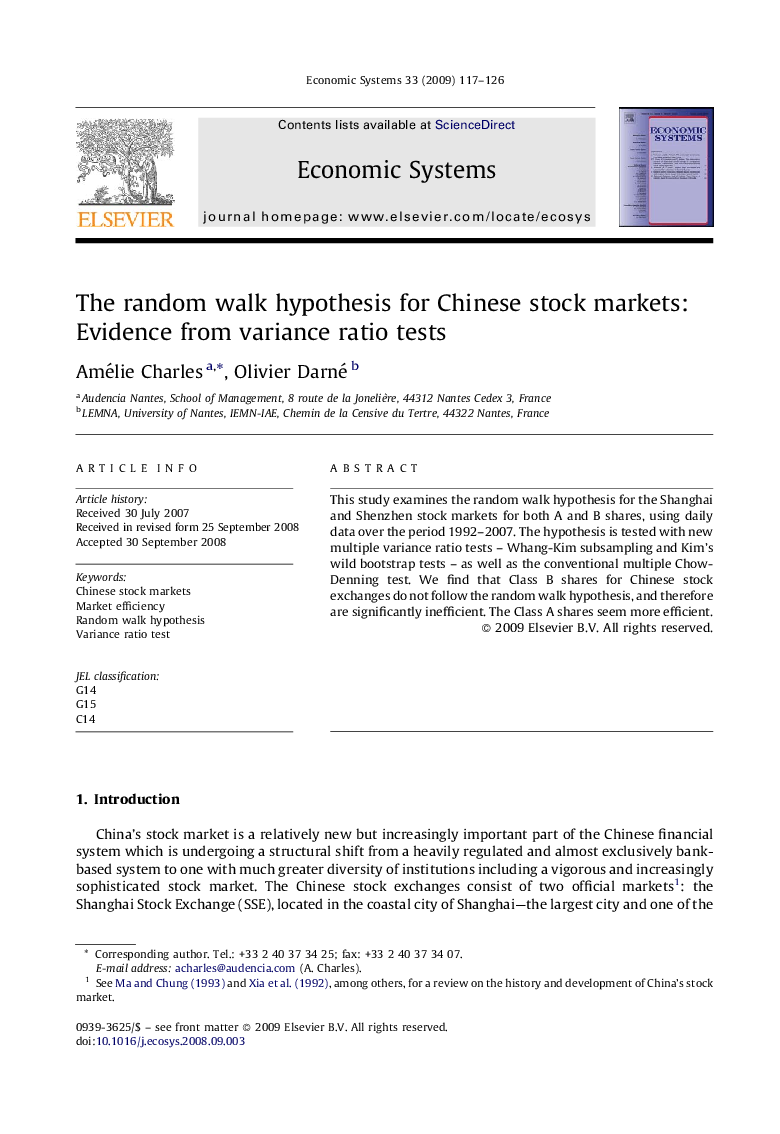| Article ID | Journal | Published Year | Pages | File Type |
|---|---|---|---|---|
| 5056702 | Economic Systems | 2009 | 10 Pages |
Abstract
This study examines the random walk hypothesis for the Shanghai and Shenzhen stock markets for both A and B shares, using daily data over the period 1992-2007. The hypothesis is tested with new multiple variance ratio tests - Whang-Kim subsampling and Kim's wild bootstrap tests - as well as the conventional multiple Chow-Denning test. We find that Class B shares for Chinese stock exchanges do not follow the random walk hypothesis, and therefore are significantly inefficient. The Class A shares seem more efficient.
Related Topics
Social Sciences and Humanities
Economics, Econometrics and Finance
Economics and Econometrics
Authors
Amélie Charles, Olivier Darné,
